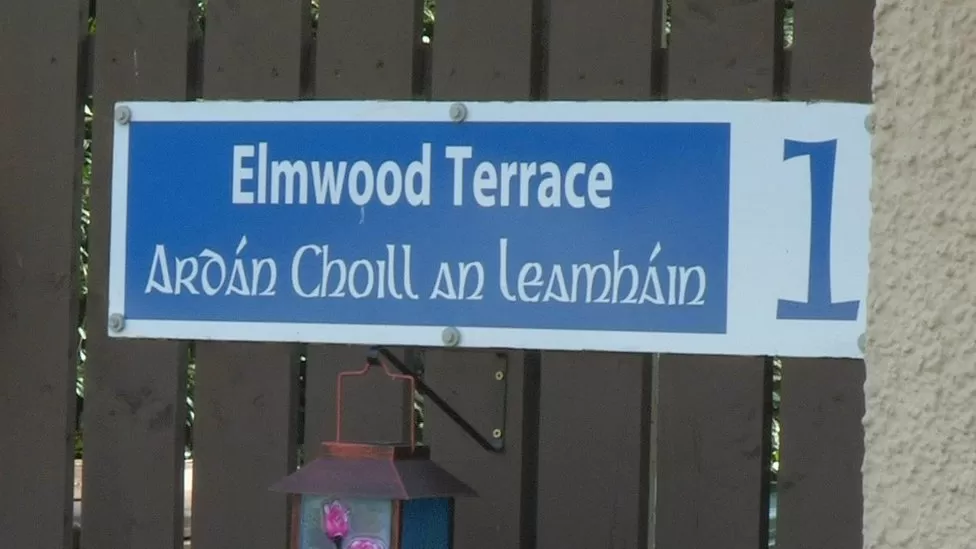A recent report from the Council of Europe (CoE) has raised concerns about the creation of a commissioner for the “Ulster British tradition” and its potential contribution to sectarianism. The report suggests that this concept needs to be reconsidered. Additionally, the CoE report recommends the promotion of more bilingual signs in Northern Ireland to convey the message of shared territory. The report also highlights the continued need for the development of Irish-language policies.
The Council of Europe, founded in 1949, is a human rights organization comprising 46 member states. This is the fifth report assessing the UK’s compliance with the convention for the protection of national minorities. The report covers a wide range of issues, including language and cultural rights, racism, integrated education, and proposals to address the legacy of the troubles. In April 2022, Council experts visited Northern Ireland and held online meetings with representatives from the devolved administrations in the UK.
Although the Identity and Language (Northern Ireland) Act was passed in Westminster in 2022, many of its practical measures have yet to be implemented. The act includes provisions for the establishment of an Office of Cultural Identity and Cultural Expression, along with the appointment of two commissioners—one for the Irish language and one for the Ulster Scots and the broader Ulster-British tradition.
‘Political ends’
The experts from the Council of Europe (CoE) expressed appreciation for the passage of the language legislation but pointed out that certain legal changes were still required. The report emphasized that some of the proposed measures could contribute to sectarianism surrounding cultural issues. Specifically, it stated that designating a commissioner for Ulster Scots under the label of the Ulster-Scots and Ulster-British tradition unnecessarily merges this minority identity with a distinctly political one. This conflation may potentially lead to the exploitation of this group for political purposes within the context of Northern Ireland.
The report also highlighted the recommendation of a CoE committee on minority languages, which stated that a comprehensive Irish language act is still necessary to establish legal certainty and transparency, particularly in education, public signage, and media.
Furthermore, the CoE experts emphasized the need for greater efforts to protect and promote languages in Northern Ireland. They noted that representatives of Ulster-Scots highlighted insufficient state support for their language and a lack of action in various fields. These representatives also expressed that significant time and resources are predominantly allocated to defending their interests within political debates.
Overall, the report calls for a reconsideration of certain proposals, the implementation of a comprehensive Irish language act, and increased support for languages in Northern Ireland, including Ulster Scots.

During their meetings with the Council of Europe (CoE) experts, representatives advocating for the Irish language highlighted the issue of erecting more bilingual street and road signs in certain council areas.
Although Belfast City Council implemented a new policy for dual language signs in 2022, there remains a considerable backlog in its implementation.
The CoE experts emphasized the necessity for a “transparent and consistent approach” to bilingual signs across all councils. Their report reiterated the advisory committee’s stance that promoting bilingualism in signposts effectively communicates the message of shared territory.
‘Fear of integration’
The CoE report emphasized the need for increased integration in education by calling for more places in integrated schools in Northern Ireland and greater support for Irish-medium education. However, it acknowledged that some children in Northern Ireland are apprehensive about integration due to the enduring legacy of the Troubles.
The report noted that the educational divide along religious lines persists, and children growing up in such contexts fear the prospect of integration due to the weight of historical conflicts in society. It advocated for the education authorities to have a vision of creating a fully integrated education system in Northern Ireland.
The experts also expressed deep concern about the situation of individuals from black, Asian, and minority ethnic backgrounds, as well as Irish Travellers, in Northern Ireland. They criticized the Stormont government’s efforts to develop a racial equality strategy, noting a lack of strong high-level commitment and dedicated funding.
Highlighting the findings of a previous Belfast City Council study that revealed racism, isolation, and poverty experienced by many ethnic minority residents, the CoE report emphasized that the absence of Stormont’s active engagement maintained a focus on post-conflict issues entrenched along political divides, resulting in the oversight of ethnic minorities.
The report also identified a “blind spot” regarding Muslim and Jewish communities in Northern Ireland and emphasized the need for a strategy to address the discrimination faced by Irish Travellers and Roma.
While the UK signed the Council of Europe’s framework convention for the protection of national minorities in 1995, which outlines principles to safeguard minorities, the CoE does not possess the authority to enforce its recommendations on the UK government or the reformed Northern Ireland Executive.

